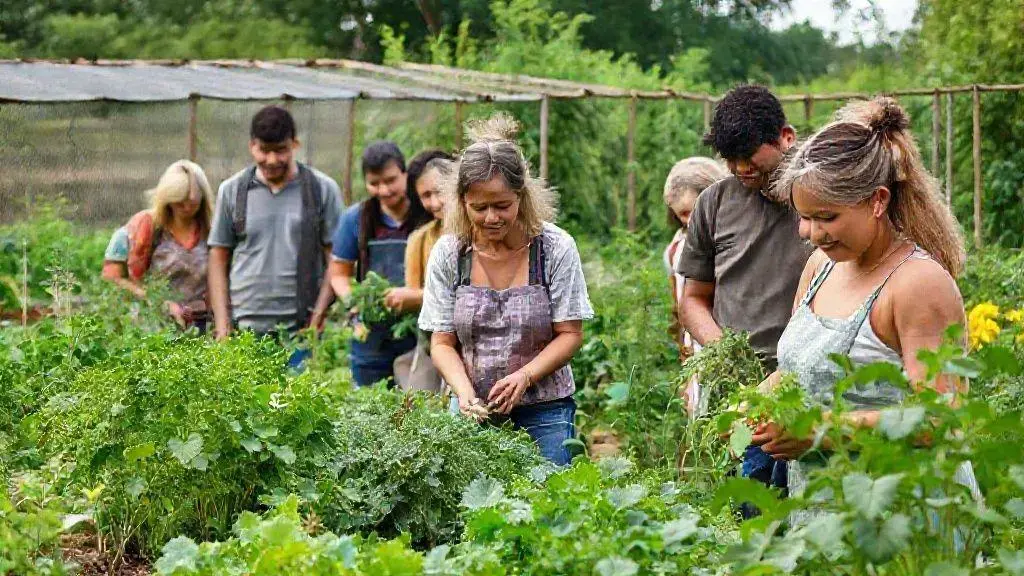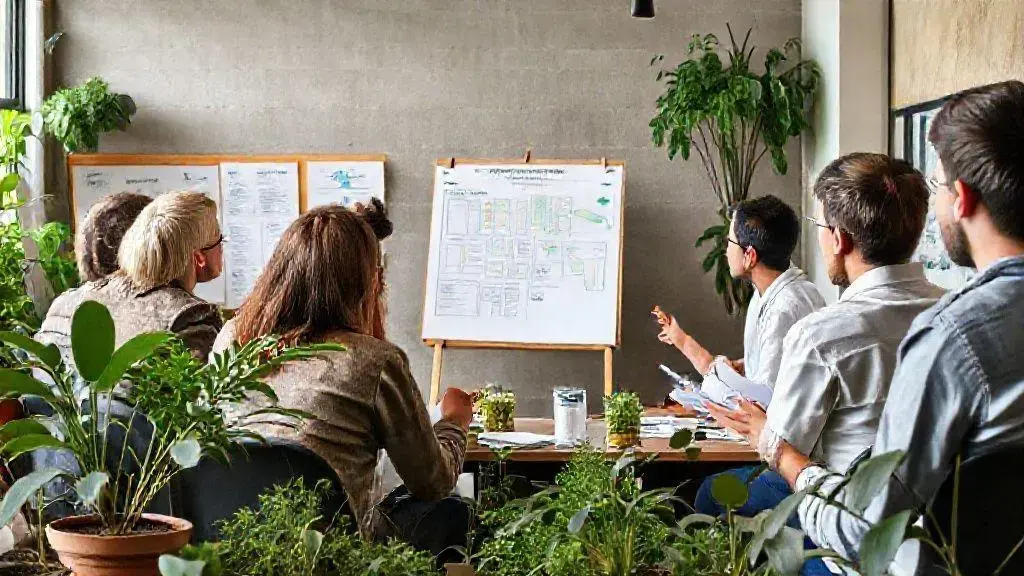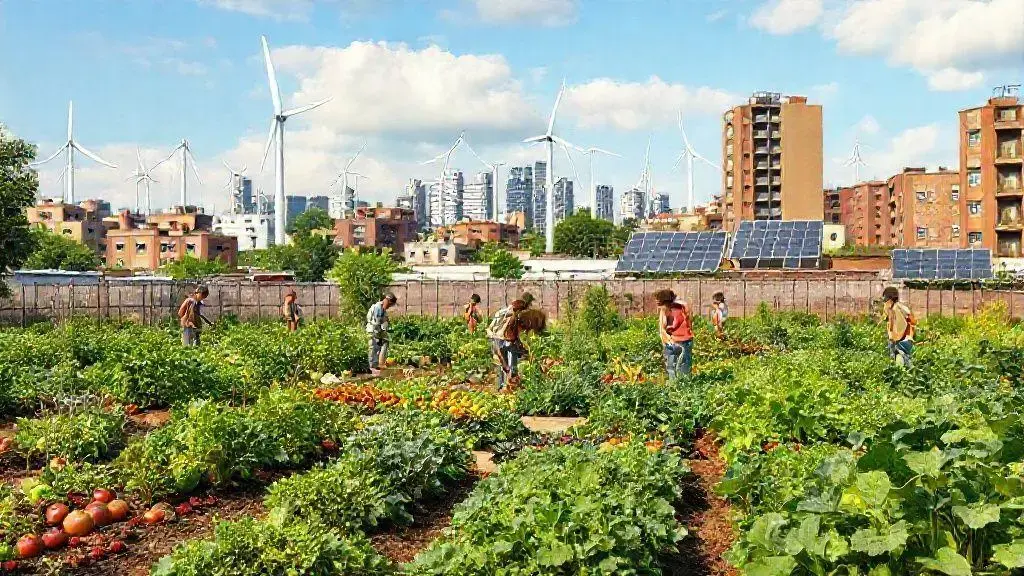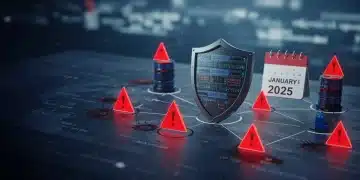Enhanced knowledge in sustainable development: why it matters

Enhanced knowledge in sustainable development enables individuals and organizations to make informed decisions, fostering practices that benefit the environment, economy, and society while addressing critical issues like climate change and resource management.
Enhanced knowledge in sustainable development is crucial for addressing today’s environmental challenges. But what does it truly mean for us? Let’s dive into its importance and how it can change our future.
Understanding sustainable development principles
To truly grasp the concept of sustainable development, we must first understand its core principles. It isn’t just about the environment; it involves social and economic dimensions too. This balance is essential for a thriving planet.
Principles of Sustainable Development include:
1. Intergenerational Equity
This principle emphasizes the importance of ensuring that future generations inherit a healthy and sustainable world. It encourages us to think long-term, making choices today that won’t compromise the needs of tomorrow.
2. Integrated Approach
Understanding the interconnectedness of social, economic, and environmental aspects is vital. When we address one area, we inevitably influence others, so a holistic approach is necessary for lasting solutions.
3. Participation and Inclusivity
Everyone has a role to play in achieving sustainable development. Engaging diverse groups, including marginalized communities, leads to more comprehensive solutions. It allows us to draw on a wide range of experiences and insights.
- Fostering collaboration can drive innovation.
- Inclusivity ensures that no one is left behind.
- Participatory processes create trust and ownership.
- Community engagement leads to sustainable practices.
Moreover, recognizing the value of natural resources is crucial. Sustainable development relies on efficient use of resources while ensuring their availability for future use. This balance helps protect ecosystems and biodiversity.
Also, minimizing waste and promoting renewable energy are fundamental aspects of sustainable practices. Embracing a circular economy encourages us to rethink how we design, use, and recycle products, ultimately benefiting our planet.
As we explore further, understanding the principles of sustainable development reveals how each decision we make can have a ripple effect. Embracing these principles guides us toward a more sustainable future.
Exploring benefits of enhanced knowledge in sustainability

Enhanced knowledge in sustainability brings numerous benefits that can significantly impact our world. When individuals and organizations possess a deeper understanding of sustainable practices, they can make informed decisions that promote environmental health.
Economic Advantages
Implementing sustainable strategies can lead to substantial cost savings. By reducing waste and improving energy efficiency, businesses reduce their operational costs. This approach not only saves money but also strengthens their market position.
Social Impact
Enhanced knowledge in sustainability fosters community engagement. When people understand the importance of sustainability, they often take action within their communities, leading to healthier environments. This active participation contributes to social cohesion and well-being.
- Creating green jobs increases employment opportunities.
- Improving access to clean resources enhances quality of life.
- Building resilient communities prepares for climate challenges.
- Encouraging volunteerism promotes shared responsibility.
Furthermore, the environmental benefits of understanding sustainability are profound. With better knowledge, individuals are more likely to adopt eco-friendly practices, like recycling and conserving energy. These actions collectively reduce the strain on our natural resources.
As people become more aware of how their choices impact the environment, they often prioritize sustainable products and services. This shift drives innovation, prompting companies to develop greener offerings. Enhanced knowledge can motivate consumers to demand transparency and ethical practices from businesses.
Ultimately, exploring the benefits of enhanced knowledge in sustainability reveals how informed choices contribute to a more sustainable future. By integrating sustainability into daily lives, we pave the way for a healthier planet.
How to acquire enhanced knowledge in sustainable practices
Acquiring enhanced knowledge in sustainable practices is crucial for anyone looking to make a positive impact on the environment. There are many pathways to gain this knowledge, whether through formal education, personal research, or community involvement.
Formal Education
A structured approach, like enrolling in courses focused on sustainability, can provide a strong foundation. Many universities offer programs in environmental science and sustainable development. These programs cover essential topics such as resource management, renewable energy, and ecological balance.
Self-Education
For those who prefer to learn on their own, numerous resources are available. Books, documentaries, and reputable online courses can provide valuable insights. Websites like Coursera and edX offer free courses on sustainability from top universities.
- Read books focused on environmental issues.
- Watch documentaries that highlight sustainable solutions.
- Follow blogs and podcasts dedicated to green living.
- Utilize online forums for discussions and knowledge sharing.
Another effective way to enhance knowledge in sustainable practices is through community engagement. Joining local groups that focus on sustainability can provide hands-on experience. Participating in initiatives like community gardens or recycling drives offers practical understanding.
Networking is also beneficial. Attend workshops, webinars, and sustainability events where you can meet experts in the field. Engaging with like-minded individuals helps spread awareness and encourages collaborative efforts towards sustainability.
Lastly, continuous learning is key. Sustainability is an ever-evolving field, with new research and innovations emerging regularly. Stay updated on recent developments by subscribing to environmental journals and following relevant news outlets. By actively seeking knowledge, you can contribute to a more sustainable future.
Real-world examples of sustainable development applications

Real-world examples of sustainable development applications show how practical solutions can effectively address environmental issues. Many communities and organizations have implemented innovative strategies that promote sustainability while providing tangible benefits.
Urban Agriculture
Urban agriculture is a fantastic example of sustainability in action. In cities around the world, community gardens and rooftop farms are becoming more common. These initiatives increase local food production while reducing the carbon footprint associated with food transportation.
Renewable Energy Projects
There are numerous successful renewable energy projects globally. Countries like Denmark have embraced wind energy, generating over 40% of their electricity from wind turbines. Similarly, solar energy farms in California showcase the potential of harnessing natural resources for sustainable power.
- Small solar installations can reduce energy bills for households.
- Wind farms create jobs while providing clean energy.
- Hydropower facilities can generate energy in a sustainable way.
- Biomass energy from organic materials reduces waste.
Another inspiring example is the implementation of green building practices. Structures built with sustainable materials and designs, such as those following LEED certification, consume less energy and water. They also enhance indoor air quality, contributing to healthier living environments.
Furthermore, organizations like the World Wildlife Fund (WWF) are promoting sustainable fishing practices. By encouraging responsible fishery management and protecting marine habitats, they help ensure fish populations remain stable and ecosystems thrive.
These real-world examples highlight that sustainability can be applied across various sectors, from agriculture to energy. By learning from successful applications, we can inspire more innovative solutions that benefit both people and the planet.
In conclusion, enhancing our knowledge in sustainable development is a vital step toward creating a healthier planet. By understanding key principles and applications, we can take meaningful action in our communities. Examples from around the world show that practical solutions are not only possible but already making a positive impact. As we learn and engage with sustainability efforts, we are empowered to contribute to a better future for ourselves and generations to come.
FAQ – Frequently Asked Questions about Sustainable Development
What are the main principles of sustainable development?
The main principles include intergenerational equity, integrated approaches, and social inclusivity to ensure a balanced environment.
How does urban agriculture contribute to sustainability?
Urban agriculture reduces food transportation emissions, increases local food production, and promotes healthier eating habits within communities.
What role does community engagement play in sustainability?
Community engagement fosters participation, encourages collaboration, and leads to local initiatives that promote sustainable practices.
How can individuals stay updated on sustainable practices?
Individuals can stay informed by following sustainability blogs, attending workshops, and subscribing to environmental publications.





